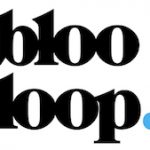Many attractions put visitor research high on their list of marketing priorities, but deeper insight is to be had by tapping into the latest emotional research and mobile app technologies used by the FMCG sector.
By Dr. Pippa Bailey (right), Innovation Director at MMR Research Worldwide.
The lines between food retail and food service and consumption and experience are becoming increasingly blurred as FMCG (fast moving consumer goods) brand owners look toward the attractions sector to find new ways of adding value. What then can attractions learn from the world of food, drink and personal care? When it comes to advanced market research techniques, rather a lot.
This is a fiercely competitive industry. There are approximately 40, 000 packaged goods available in the average modern retail setting and consumers spend roughly one sixth of a second to look at every product they are exposed to. Needless to say, manufacturers need to employ highly sophisticated research techniques to cut through complex decision behaviour, develop products that stand out from the crowd, disrupt behaviour and earn a long term place within consumers’ repertoires.
For many years, market research gurus have been heralding the arrival of mobile research to capture ‘in the moment’ behaviours and emotions and to track the same respondents throughout their consumption experience. The smartphone allows a number of different research techniques, such as qualitative, quantitative and video evidence, to be used in parallel, providing a richer, more engaging and accessible set of data. Consumers of all ages are comfortable using a phone and can give feedback in their time and in private, making for much more authentic and reliable responses.
Yet, in reality, very few brands are using mobile apps to better understand their target customers. Working with the Royal Shakespeare Company (RSC), MMR Research Worldwide wanted to explore the potential of the mobile app as a tool to understand audience engagement and capture the emotional journey of both adults and children before, during and after attending the 2013 Christmas performance of Wendy and Peter Pan. Like other attractions, one of the RSC’s biggest challenges is capturing ‘in the moment’ responses from people as they disappear into the dead of night in one huge wave.
Valuable lessons were learned for the attractions industry.
The research
All adults who purchased a family ticket and gave permission to be contacted by the RSC were sent an email invitation to take part in the app survey, incentivised by a prize draw (see a copy of this email at the foot of this article).
Three stages of the emotional journey were defined:
1) Pre-performance – a rough hierarchy in terms of expectations of the performance. Here, the focus was around curiosity and the unknown, wanting to know what was driving the excitement of the visit.
2) At the performance – the immediate sensory experience and execution of the story and
3) Post-performance – this was about reflection and meaning, themes and questions.
Pre-performance, there were five main drivers of excitement: the mystery of not knowing what it was going to be like, feedback from friends who had been and said it was a good production, being able to compare the story of Peter Pan with previously seen adaptations, wondering how the RSC would handle the characters’ flying and finally, expectation having visited the RSC before.
At the performance, it was clear that the kids’ excitement was buoyed up by being at the venue. They were consumed with the elements of the show before them – the characters, the flying, the staging and costumes. Adults’ excitement was more related to the “moving, ” “magical” and “thought-provoking” themes of the play.
Post-performance, as lasting memories, the staging of the production really caught the children’s imaginations and this is what they talked about most. The more nuanced meanings were also noted by lots of the children. There was real engagement with the stage set, particularly the special effects such as the flying and the trap door on the stage.
What the app survey provided over the RSC’s traditional online survey (usually sent out two weeks post visit) was a greater depth and richness in spontaneous feedback, particularly from adults. This insight identified key moments of  engagement which the marketing team can learn from for the promotional activity of future productions. The videos also highlighted the role of the set design on the children’s enjoyment and engagement with the performance which, along with quant data from the traditional survey, have ultimately impacted some key decisions about the future life of this production, with its costly staging.
engagement which the marketing team can learn from for the promotional activity of future productions. The videos also highlighted the role of the set design on the children’s enjoyment and engagement with the performance which, along with quant data from the traditional survey, have ultimately impacted some key decisions about the future life of this production, with its costly staging.
There were drawbacks to the research method. Response rates were lower than normal – 1.8 per cent for the pre-show survey compared with the usual 15 per cent for a conventional online survey. The reasons reported were not having a smartphone, not knowing what an app is and difficulties downloading the app. There is still some way to go before mobile app research can be relied upon for volume responses and for reaching all demographics.
Something which took the researchers by surprise was how the research process itself increased engagement with the production, a message fed back by many of the parents. One said, “I think that doing the survey helped to embed the experience for him so he was able to better review his own reactions – so thumbs up. It was overall good to be involved.”
So it seems that deeper engagement with customers – getting your experience into their homes, hearts and minds through research – is a potential win-win for everyone. The attractions industry should take an active interest in the development of sophisticated new techniques being used by FMCG brands to understand the relationship between their products and customers.

Dr Pippa Bailey is Innovation Director at MMR Research Worldwide, a leading research partner for food, drink and personal care companies with profound expertise in sensory research, product testing, packaging, NPD and emotion-based research.










